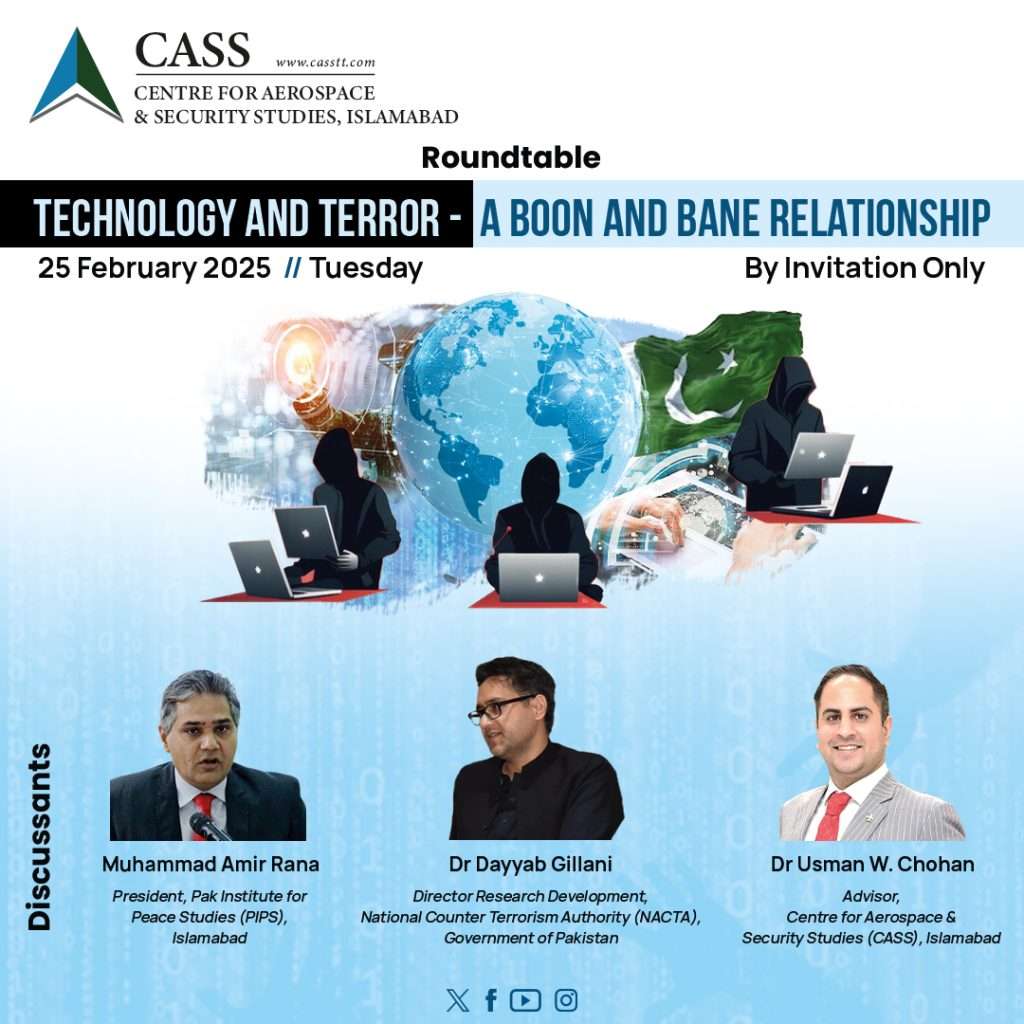Technology has become an integral part of modern society, shaping every facet of our lives. Unfortunately, terrorism is no exception. With rapid advancements in technology, terrorists are finding innovative ways to leverage cutting-edge tools, making their operations more sophisticated, lethal, and far-reaching. From AI-powered propaganda bots to drone attacks, and from blockchain-based anonymous financing to cyberattacks on critical infrastructure, the dark side of technological innovation is increasingly evident. Technology has become a powerful enabler of terrorism, driving its global reach and operational sophistication.
At the same time, technology holds immense promise as a counterterrorism tool. When employed effectively, it can provide powerful solutions to combat the scourge of terrorism. For instance, AI can analyse vast amounts of data, from social media activity to financial transactions, to predict potential attacks, detect signs of radicalisation, and optimise resource allocation. Blockchain technology can be used to track and disrupt terrorist financing, while drones and advanced surveillance systems can enhance monitoring in high-risk areas. Some countries are using AI-based surveillance systems for counterterrorism, while others have deployed cybersecurity frameworks to thwart cyberattacks by terror groups.
For Pakistan, a country significantly affected by terrorism, integrating technology into its counterterrorism strategies is no longer an option but a necessity. However, the country faces unique challenges, such as limited resources and a lack of coordinated Public-Private Partnerships (PPPs), which need to be addressed. Exploring collaborations with global tech companies and leveraging Pakistan’s emerging tech ecosystem can catalyze progress. It is equally important to understand how terrorist outfits in the region exploit technology will help formulate more targeted and effective responses.
With this context in mind, CASS is organising a roundtable to examine the evolving relationship between technology and terrorism. The roundtable aims to:
- Identify the extent to which terrorist groups are utilising advanced technologies.
- Highlight available technological options for counterterrorism, including AI, blockchain, drones and cyber tools.
- Explore the role of Public-Private Partnerships in enhancing tech-based counterterrorism efforts.
- Assess the opportunities and challenges for Pakistan in adopting a tech-driven approach to counterterrorism.
Press Release
News Coverage
Newspaper Links




















